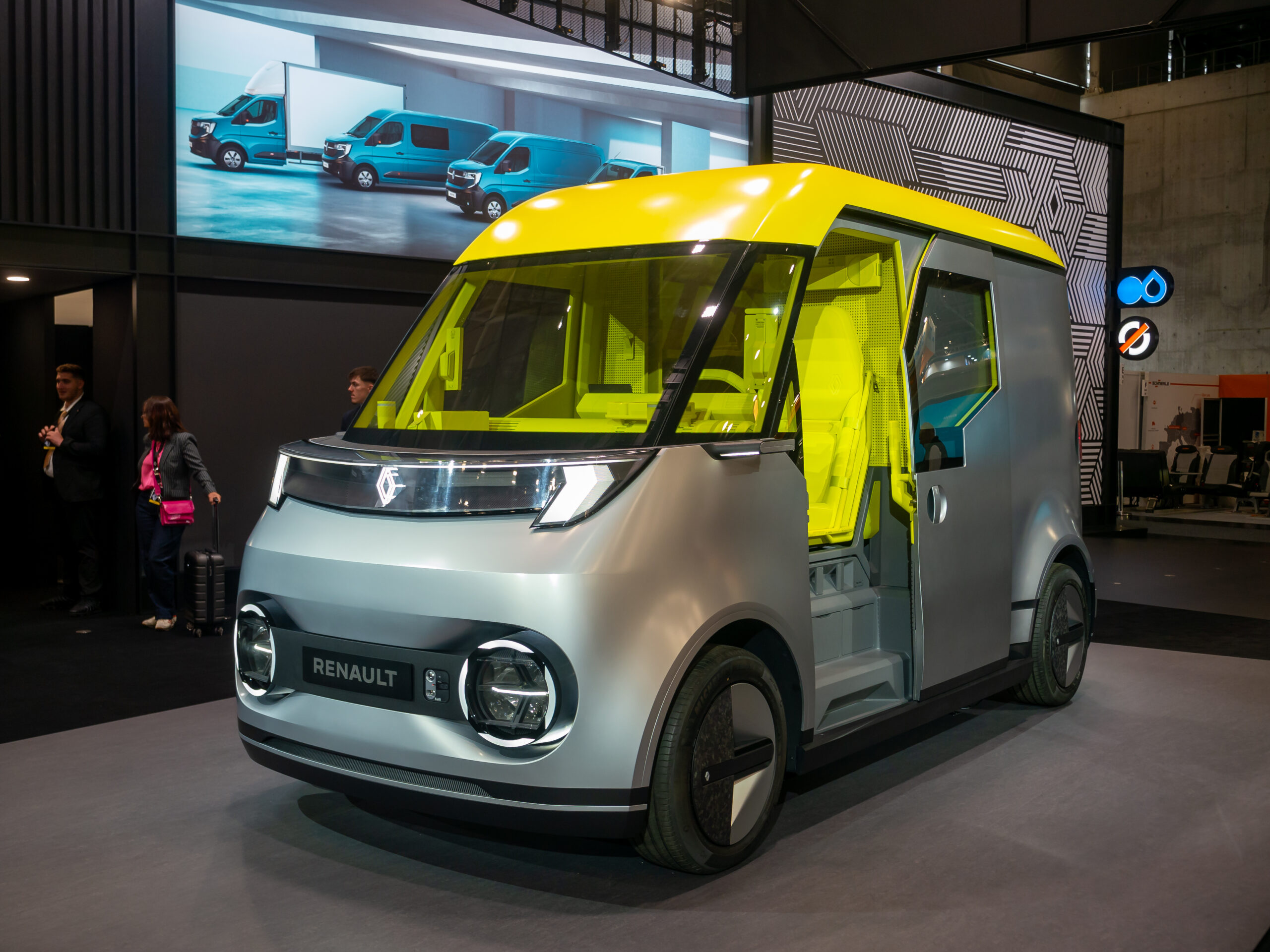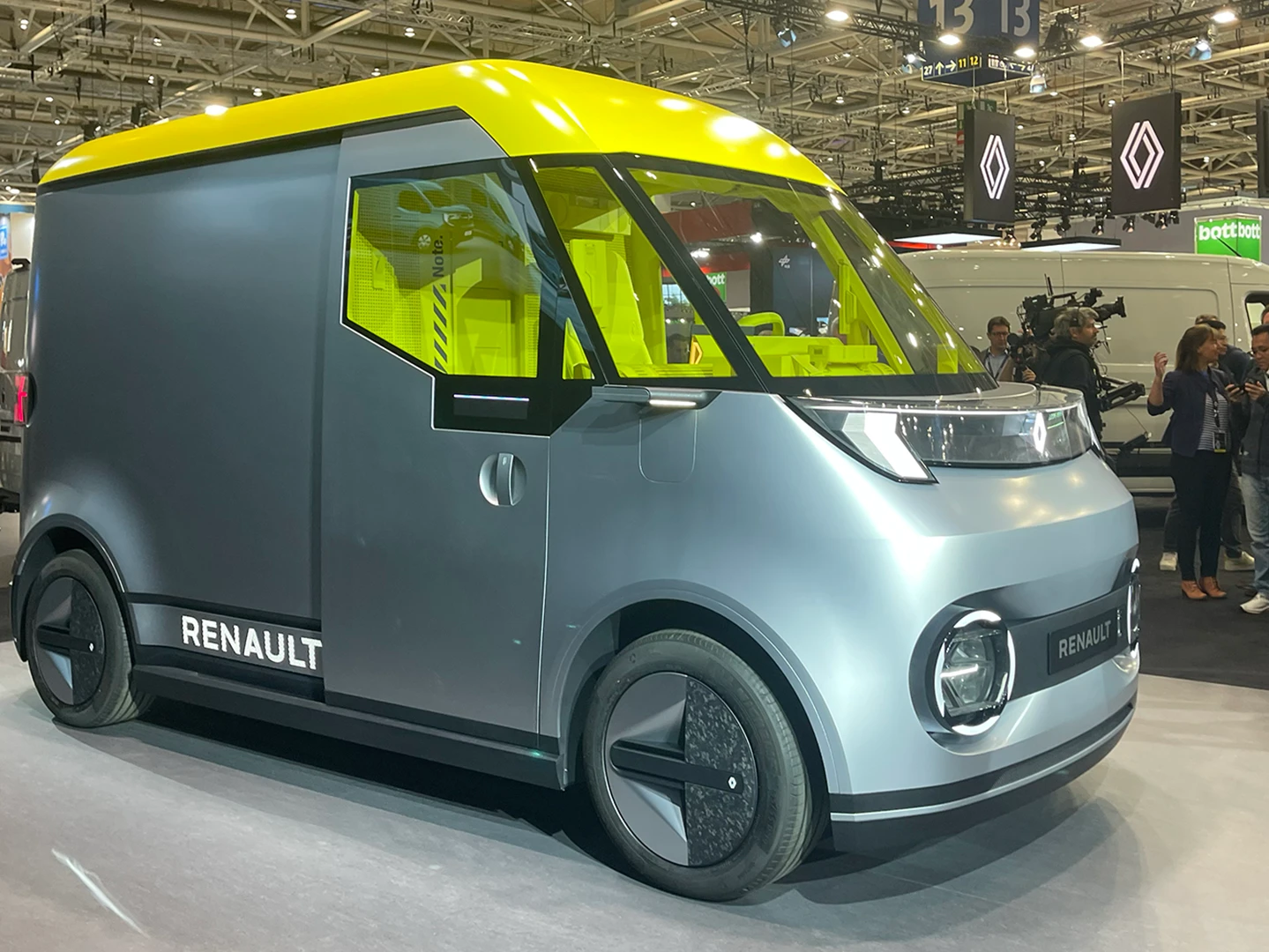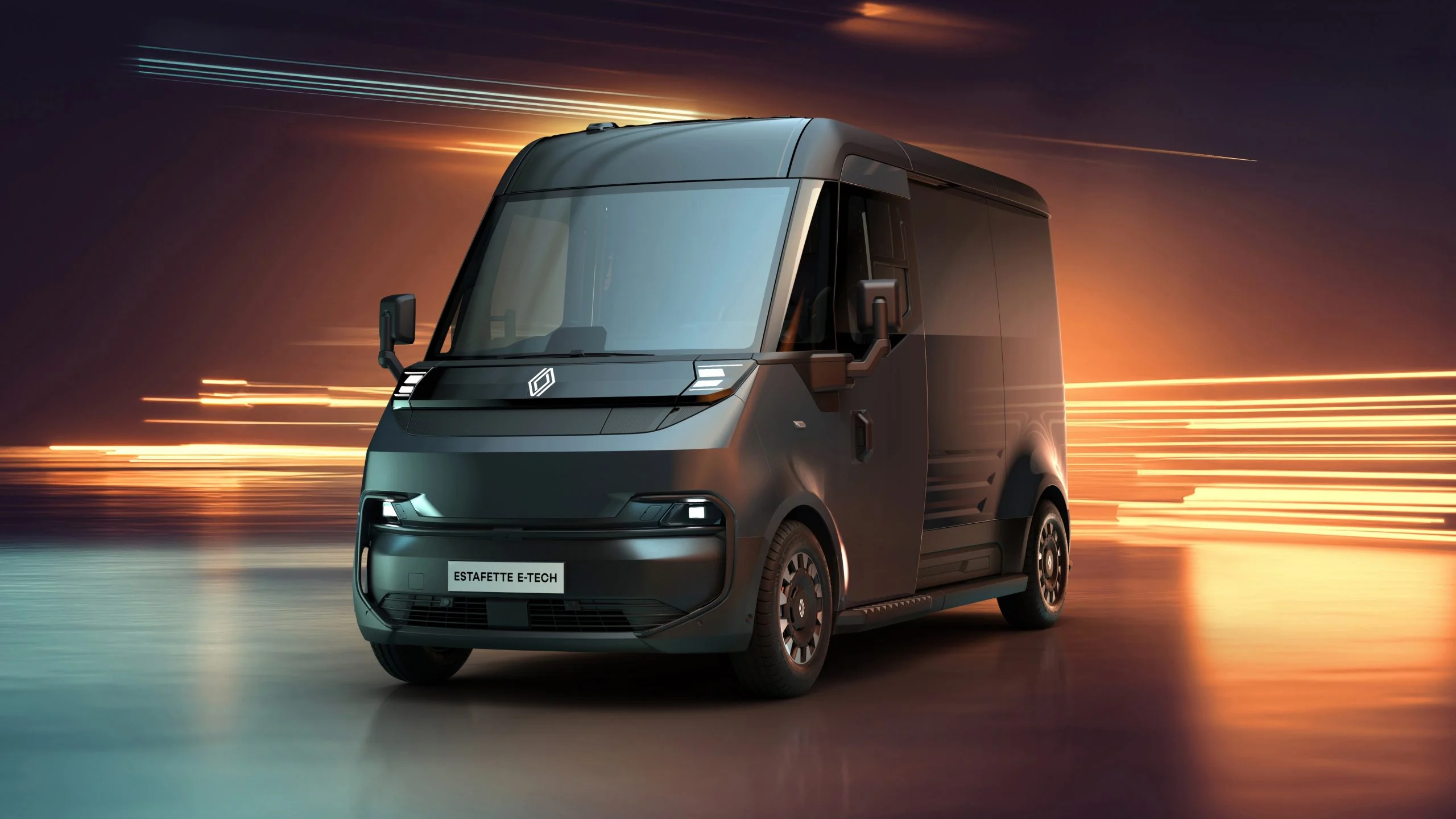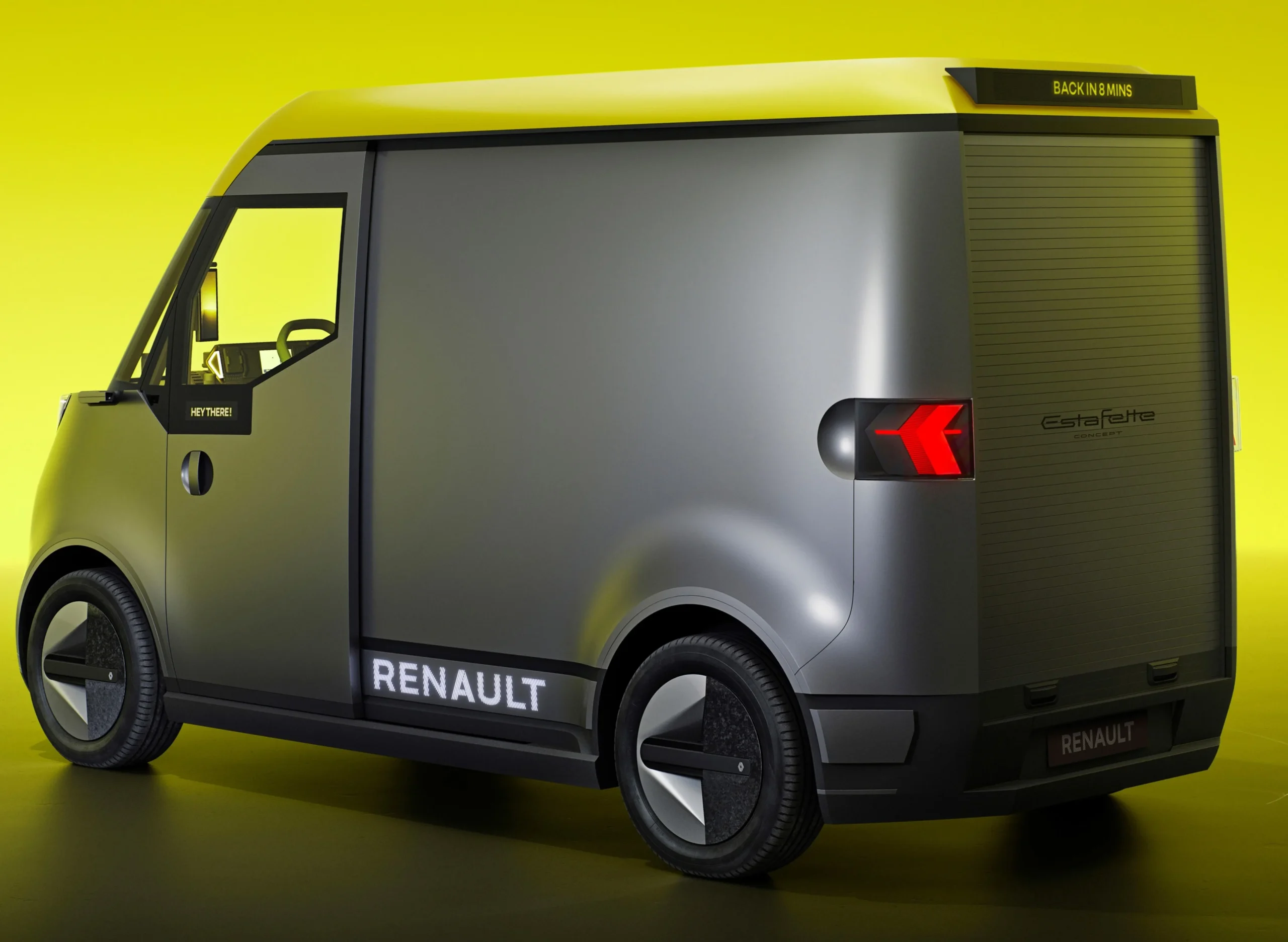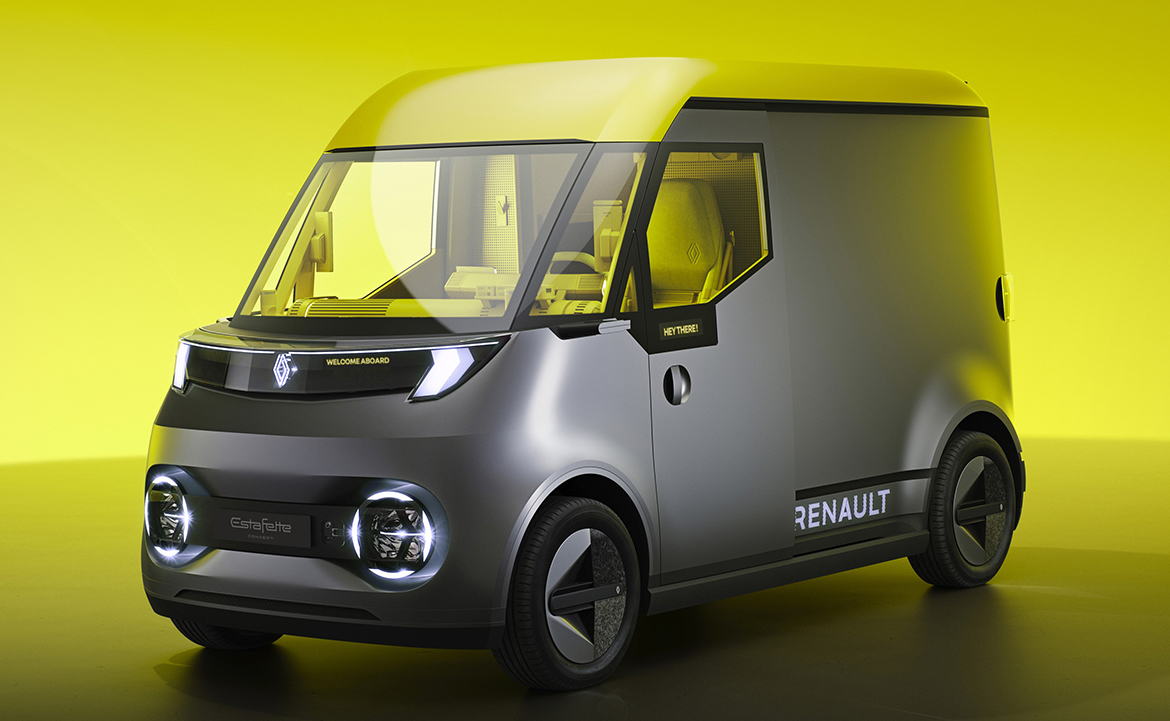Description
Renault FlexEVan: The Electric Fridge Van Revolutionizing Cold Chain Logistics
The cold chain industry, responsible for transporting temperature-sensitive goods like pharmaceuticals, groceries, and flowers, is a critical yet energy-intensive sector. Renault is aiming to disrupt this space with the FlexEVan, an all-electric fridge van based on its E-Tech Electric platform, poised to revolutionize cold chain logistics with its eco-friendliness and adaptability.
Electrification Meets Refrigeration: A Sustainable Solution
The FlexEVan represents a significant step towards decarbonizing the cold chain. By replacing traditional diesel-powered refrigeration units with an electric solution, Renault aims to significantly reduce CO2 emissions and noise pollution in urban environments. This move aligns with the growing demand for sustainable logistics solutions and contributes to cleaner, greener cities.
The “E-Tech Electric” designation signifies Renault’s commitment to electric mobility. The FlexEVan leverages the established performance and reliability of their electric vehicle technology, providing a practical and efficient solution for businesses seeking to minimize their environmental impact.
Beyond Just Electric: Flexibility is Key
The FlexEVan isn’t just about being electric; it’s about being adaptable. Understanding the diverse needs of cold chain businesses, Renault has designed the FlexEVan to be highly configurable. This allows businesses to customize the van’s interior to perfectly match their specific requirements.
Potential customizations might include:
- Adjustable Temperature Zones: Allowing for the simultaneous transport of goods requiring different temperature ranges.
- Customizable Shelving and Storage Systems: Optimizing space utilization and ensuring the safe transport of fragile goods.
- Real-Time Temperature Monitoring: Providing crucial data to ensure product integrity and regulatory compliance.
This flexibility allows businesses to optimize their cargo capacity and workflow, ultimately improving efficiency and reducing waste.
The Advantages of an Electric Fridge Van
The advantages of adopting an electric fridge van like the Renault FlexEVan extend beyond environmental benefits.
- Reduced Running Costs: Electric vehicles typically have lower running costs compared to their diesel counterparts due to cheaper electricity and reduced maintenance requirements.
- Quiet Operation: The near-silent operation of the electric powertrain contributes to a more pleasant working environment for drivers and reduces noise pollution in urban areas.
- Access to Low Emission Zones: Many cities are implementing Low Emission Zones (LEZs) that restrict access to vehicles with high emissions. The FlexEVan provides access to these zones, expanding operational reach.
- Enhanced Brand Image: Embracing sustainable solutions like the FlexEVan can enhance a company’s brand image and appeal to environmentally conscious customers.
Challenges and the Road Ahead
While the FlexEVan presents a promising solution, challenges remain for widespread adoption:
- Initial Investment: Electric vehicles often come with a higher upfront cost compared to traditional vehicles. However, government incentives and long-term cost savings can help offset this investment.
- Range Anxiety: Concerns about driving range and charging infrastructure are common with electric vehicles. Continuous improvements in battery technology and the expansion of charging networks are crucial to alleviate these concerns.
- Payload Capacity: The weight of the battery pack can potentially impact payload capacity. Renault needs to ensure the FlexEVan offers competitive payload capacity compared to traditional fridge vans.
The Verdict: A Game-Changer for Cold Chain Logistics
The Renault FlexEVan represents a significant step forward in electrifying and modernizing the cold chain industry. By combining electric powertrain technology with adaptable design and a commitment to sustainability, Renault is offering a compelling solution for businesses seeking to reduce their environmental footprint, lower operating costs, and improve efficiency. While challenges remain, the FlexEVan has the potential to be a game-changer, paving the way for a greener and more sustainable future for cold chain logistics.

